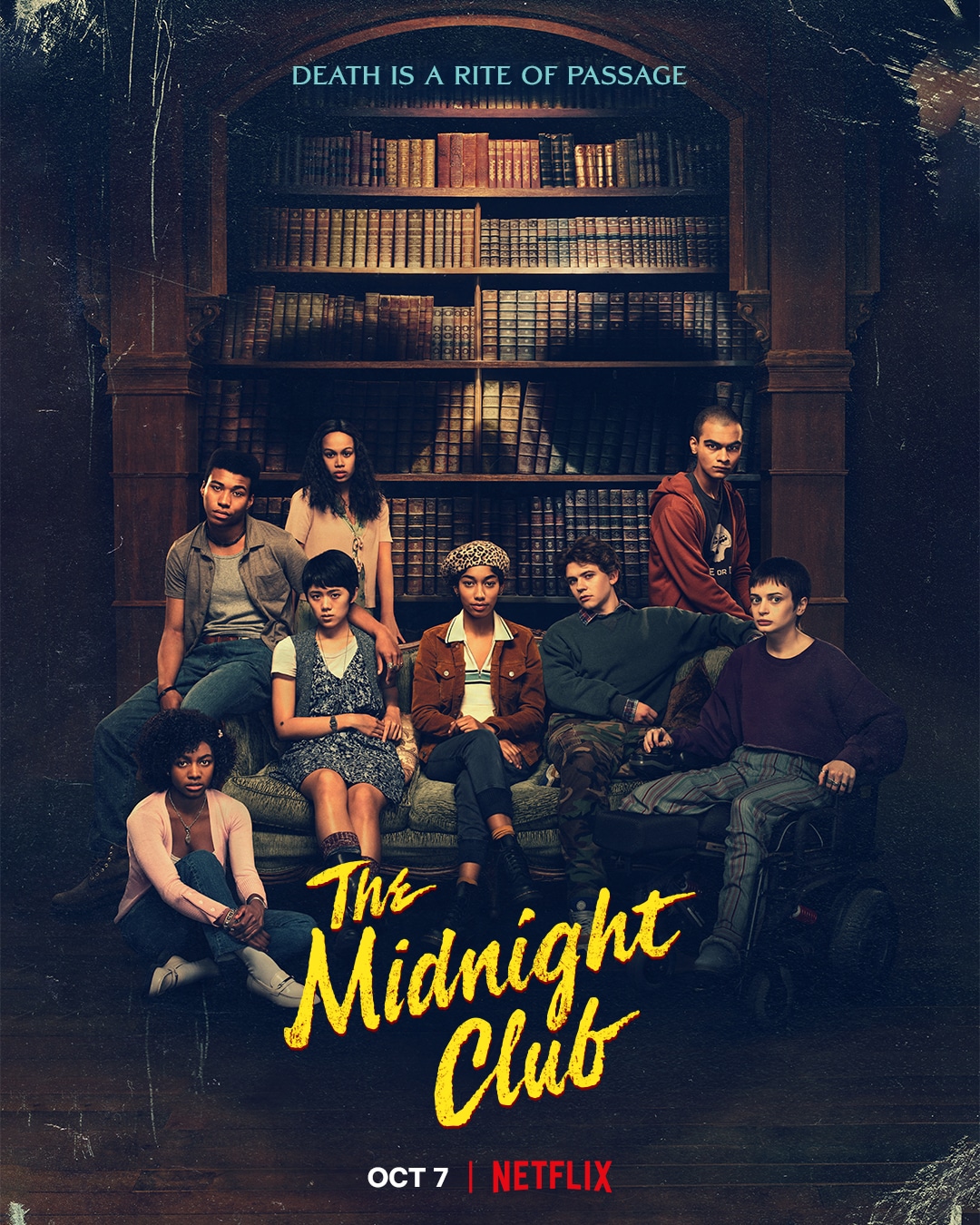
- Creator
- Mike Flanagan
- Rating
- TV-MA
- Episodes
- 10
- Running Time
- 540 minutes
- Channel
- Netflix
Overall Score
Rating Summary
Mike Flanagan has built a reputation for having a strong hold on things that go bump in the night and has shown a unique aptitude for turning these eerie sensations into narratives that make a well-trodden genre feel like new once again. With mini-series such as Midnight Mass and The Haunting of Hill House or features such as Oculus and Hush, Flanagan can take a simple premise of something reaching out just beyond our understanding and populate his created world with characters that are interested in pushing back to see what’s there.
Such is the case with The Midnight Club, with which Mike Flanagan, being the showrunner, co-writer and co-executive producer, has placed his imprint entirely on the project from start to finish. The material is adapted from the popular YA novel sharing the same name written by Christopher Pike and it centers around several terminally ill young adults who choose to live out their remaining days in a hospice house tailored for their age. Each night these teens meet together in order to share ghost stories with one another in an effort to distract from their pain as well as face what lies ahead (and beyond) directly.
While that premise alone is enough to satisfy many viewers and it possesses the merit to go head-to-head with many melodramatic series on similar platforms, this would not be a traditional Flanagan entry if it did not contain a supernatural element. While the series does right by offering equal screen time to all of the teens, viewers spend the most time with Ilonka who is the newest addition to the already established club alongside Natsuki, Sandra, Kevin, Shari, Anya, Spencer and more. Her reasons for singling out this specific place to spend her remaining time on Earth slowly unfolds into a larger mystery centering around the previous tenants and the possibility of healing. Naturally, there is a discovered “energy” throughout the house, but the main focus always remains fixed upon the teens and their journeys.
This fact is the biggest misstep of The Midnight Club as it prioritizes the teen’s battles with mortality, family, missed opportunities and guilt over the supernatural breadcrumbs the series patiently drops for viewers. Instead of finding a balance between the two, it steers towards lop-sided storytelling that makes an incredible emotional impact through immensely deep monologues and conversations that feel poignant and mature beyond the voices that are delivering them. In return, it often shoehorns in horror or supernatural elements into the overarching narrative seemingly just to appease fans that clicked play expecting these in the first place, which is a practice completely understandable given the series’ trailer portraying that element as a centerpiece of its story.
This isn’t to say any supernatural pieces are non-existent. There is plenty to enjoy from each of the kid’s stories they share with each other and there exists an entire subplot surrounding the house’s energy that offers some highly interesting avenues for exploration and yet by the series’ end it appears only the surface of the truth has been scratched. It’s a significant miscalculation given the mini-series was given a 10-episode run with each clocking in around 50+ minutes that forgoes closure choosing instead to offer smaller threads being tied in favor of leaving the larger ones left for another time.
The Midnight Club is a strange product because on one level it does not feel as emotionally engaging as some of Flanagan’s previous work despite dealing with the concept of death and trauma and yet there are true moments of beauty through the interactions of the characters as they seek comfort by way of answers. Through this lens, the idea of hope is the series’ strongest weapon but as a trade-off, the melodrama supersedes any flirtation with supernatural elements resulting in a waning interest in what’s to come as the series progresses.
The Midnight Club had plenty of promise because of its strong YA novel pedigree mixed with Flanagan’s keen sense of what works in this genre but ultimately one can’t help but want more ghosts, monsters, or things unseen in a series that chooses to walk so closely to what lies after death. Though parts of The Midnight Club are enjoyable, its lack of proper pacing affected its narrative balance and ultimately hurt the sum of those parts.
still courtesy of Netflix
If you liked this, please read our other reviews here and don’t forget to follow us on Twitter or Instagram or like us on Facebook.

Trying my best to get all thoughts about TV and Film out of my head and onto the interweb.
Discover more from
Subscribe to get the latest posts sent to your email.
